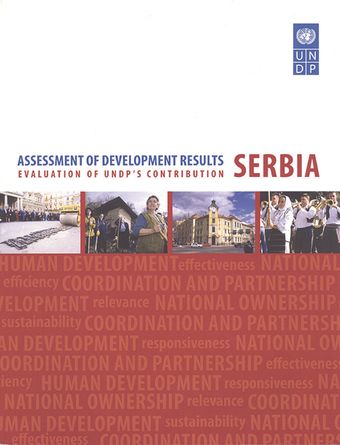National challenges and strategies

- Author: United Nations Development Programme
- Main Title: Assessment of Development Results - Serbia , pp 8-21
- Publication Date: December 2009
- DOI: https://doi.org/10.18356/87497801-en
- Language: English
Serbia’s democratic transition, which started with the ouster of Slobodan Milošević in 2000, has been shaped by its long-term goal of membership in the European Union. But en route to EU accession, Serbia continues to face challenges rooted in regional instability, the unresolved status of Kosovo, poverty, and the legacy of the recent history of conflict – all of which culminated in the assassination of Serbia’s prime minister in 2003. Political fragmentation and social division continue to impede the republic’s development. Moreover, the recent decision by Montenegro to leave the state union with Serbia will present challenges of another kind.
© United Nations
ISBN (PDF):
9789210599818
Book DOI:
https://doi.org/10.18356/fa6dc781-en
Related Subject(s):
Economic and Social Development
Sustainable Development Goals:
Countries:
Serbia
-
From This Site
/content/books/9789210599818c005dcterms_title,dcterms_subject,pub_keyword-contentType:Journal -contentType:Contributor -contentType:Concept -contentType:Institution105
/content/books/9789210599818c005
dcterms_title,dcterms_subject,pub_keyword
-contentType:Journal -contentType:Contributor -contentType:Concept -contentType:Institution
10
5



